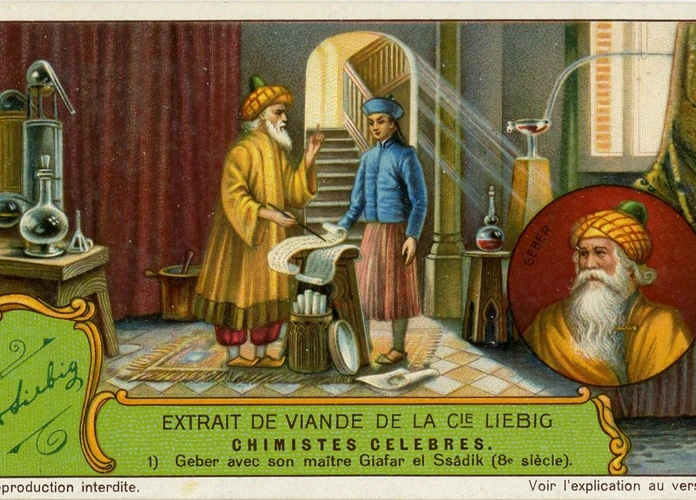When we think of the Islamic Golden Age, our minds often turn to advancements in fields such as mathematics, astronomy, and literature. However, one area that played a significant role during this extraordinary period was alchemy. Alchemy, with its roots in ancient civilizations and its development in the Greco-Roman world, found a fertile ground for growth and exploration in the Islamic world. This article aims to delve into the fascinating role of alchemy in the Islamic Golden Age, exploring its origins, its influence on science and medicine, its connections to philosophy and spirituality, and ultimately, the factors that led to its decline. Join us as we uncover the enigmatic world of alchemy and its profound impact on this extraordinary era.
1. Origins of Alchemy
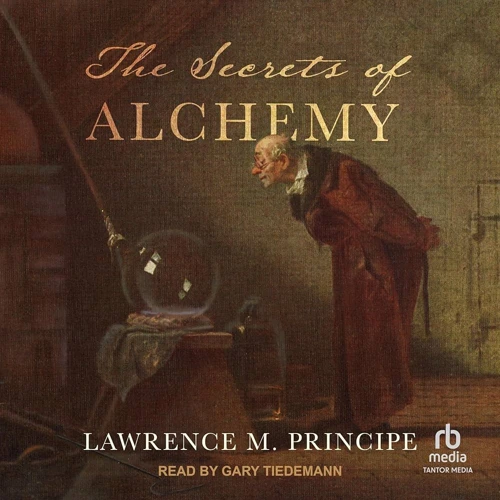
The origins of alchemy can be traced back to ancient civilizations, where the pursuit of knowledge and the desire to transform base materials into precious substances captured the imaginations of many. This esoteric practice then flourished in the Greco-Roman world, with figures like Hermes Trismegistus gaining renown for their alchemical wisdom. Alchemy was believed to hold the key to unlocking the secrets of nature, allowing practitioners to transmute metals, create elixirs of immortality, and delve into the depths of spiritual enlightenment. To learn more about the fascinating history of alchemy and its influential figures, including the legendary Hermes Trismegistus, visit /the-origins-and-history-of-alchemy/.
1.1 Ancient Roots
In exploring the ancient roots of alchemy, we uncover a rich tapestry of beliefs and practices that spanned across various cultures and civilizations. From the earliest recorded civilizations in Mesopotamia and Egypt, alchemy emerged as a mystical and occult art intertwined with religious and spiritual ideologies. The Egyptians, for example, believed in the existence of a divine force that governed the natural world and sought to harness its power through alchemical rituals and processes. They even developed complex symbolic representations, such as the Ouroboros, a serpent devouring its own tail, which represented the cyclical nature of life and transformation within alchemy. Similarly, in early Chinese culture, the pursuit of immortality and the transmutation of substances were integral aspects of alchemical practices. The ancient roots of alchemy laid the foundation for the development and evolution of this enigmatic art, setting the stage for its later prominence in the Islamic Golden Age. To learn more about the fascinating figures and historical context of alchemy, explore the link to /famous-alchemists-history/ for a deeper dive into this captivating subject.
1.2 Development in Greco-Roman World
In the Greco-Roman world, alchemy saw significant development and refinement, as various scholars and philosophers contributed to its evolution. One prominent figure in the development of alchemy was Zosimos of Panopolis. Zosimos, an Egyptian alchemist who lived during the 3rd and 4th centuries, made important contributions to the understanding of alchemical processes and techniques. He believed that the transformation of metals was closely linked to spiritual purification, viewing the alchemical process as a metaphor for the soul’s journey towards enlightenment. Zosimos also explored the concept of the Ouroboros, a symbol depicting a serpent or dragon eating its own tail, which represented the cyclical nature of transformation and regeneration. To learn more about the fascinating symbolism of the Ouroboros in alchemy, visit /alchemical-symbolism-ouroboros/. Another influential alchemist of the Greco-Roman era was Maria the Jewess, also known as Maria Prophetissima. She is credited with the invention of several alchemical apparatus and techniques, including the water bath and the tribikos. Maria’s contributions laid the groundwork for later advancements in alchemical experimentation. The Greco-Roman period marked an important phase in the development of alchemy, as philosophers and practitioners sought to unravel the mysteries of nature and unlock the secrets of transmutation.
2. Alchemy and the Islamic Golden Age
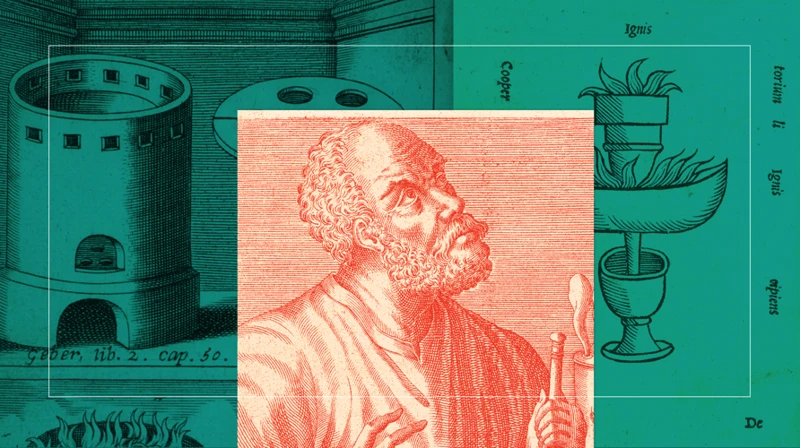
Alchemy played a vital role during the Islamic Golden Age, where it thrived and made significant contributions to various fields. One of the reasons for its growth during this period was the translation movement, which brought ancient Greek and Persian texts into the Islamic world, allowing scholars to access and explore the teachings of alchemy. Alchemical knowledge spread rapidly, leading to the establishment of centers of alchemical research and practice across the Islamic world, such as Baghdad, Cairo, and Andalusia. These centers became hubs of scientific and intellectual exchange, fostering innovation and discoveries in alchemy, chemistry, and medicine. The Islamic scholars not only preserved the ancient alchemical knowledge but also built upon it, further advancing the understanding of materials, chemical processes, and the human body. Alchemy within the Islamic Golden Age played a crucial role in shaping scientific, medical, and philosophical advancements that had a lasting impact on the world.
2.1 Spread of Alchemy to the Islamic World
The spread of alchemy to the Islamic world played a significant role in its development and flourishing during the Islamic Golden Age. Alchemy was introduced to the Islamic world through translations of Greco-Roman texts, as scholars sought to preserve and build upon the knowledge of the ancient world. The House of Wisdom in Baghdad emerged as a center for translation and intellectual exchange, where Arabic-speaking scholars translated works from Greek, Syriac, and Persian into Arabic. These translations brought crucial alchemical texts, such as those by Hermes Trismegistus and Zosimos of Panopolis, into the hands of Islamic scholars.
The Islamic world’s embrace of alchemy was also influenced by its compatibility with Islamic metaphysical and philosophical beliefs. Alchemy appealed to the Islamic worldview, as it localized the search for knowledge and understanding within the natural world. Islamic scholars were drawn to the alchemical concept of transforming base materials into valuable substances, mirroring the spiritual journey of the soul seeking enlightenment and purification.
This exchange of knowledge extended beyond Baghdad and reached other major cities, such as Cairo, Damascus, and Cordoba. Islamic scholars eagerly absorbed and expanded upon the alchemical teachings, blending them with their own insights, theories, and discoveries.
The spread of alchemy in the Islamic world was not limited to scholarly pursuits; it also permeated society and influenced various artisanal practices. Alchemy’s association with practical applications, such as metallurgy and the development of pharmaceutical remedies, ensured its integration into the everyday lives of people. These practical aspects of alchemy further encouraged its adoption and provided a fertile ground for experimentation and innovation.
The spread of alchemy to the Islamic world was facilitated by the translation efforts of scholars in the House of Wisdom and other centers of learning. Its compatibility with Islamic philosophy and its practical applications contributed to its widespread adoption in society. This cultural exchange and synthesis of ideas laid the foundation for the significant role that alchemy would play in the Islamic Golden Age.
2.2 Alchemical Centers in the Islamic Golden Age
During the Islamic Golden Age, several cities emerged as prominent centers for alchemical studies and practices. Baghdad, the capital of the Abbasid Caliphate, became a hub of intellectual activity, attracting scholars from diverse backgrounds. The House of Wisdom, an institution established in Baghdad, housed a vast library that contained numerous alchemical manuscripts, offering a wealth of knowledge to aspiring alchemists. Another important center was Aleppo, in present-day Syria, which hosted renowned alchemists like Jabir ibn Hayyan, known as Geber in the West. Jabir ibn Hayyan’s pioneering works on chemistry and alchemy paved the way for future advancements in these fields. Cairo in Egypt and Al-Andalus in Spain were also significant centers for alchemical studies during this period. The alchemical knowledge produced and disseminated in these centers contributed to the broader scientific and intellectual advancements of the Islamic Golden Age, elevating alchemy to a respected discipline within the Islamic world.
3. Alchemy in Science and Medicine
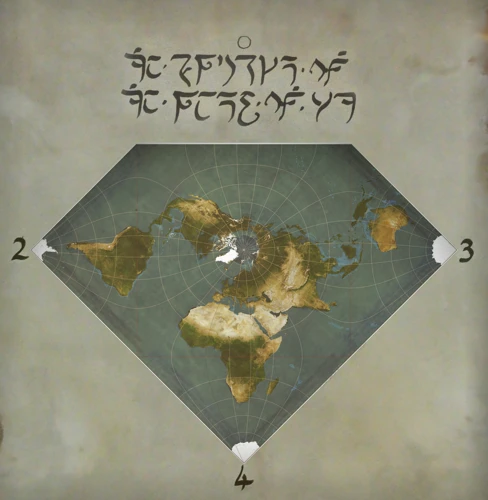
Alchemy’s influence extended beyond spiritual and philosophical realms. During the Islamic Golden Age, alchemy made significant contributions to the fields of science and medicine. The practice of alchemy laid the foundation for modern chemistry, as alchemists developed techniques for laboratory experimentation, chemical observations, and the classification of substances. They explored the properties of various elements and compounds, paving the way for advancements in the understanding of matter. Alchemy also played a crucial role in pharmacy and medicine, as alchemists sought to discover methods for purifying and enhancing the therapeutic properties of substances. They pioneered the development of distillation techniques, the creation of new medicines, and the synthesis of essential oils. The profound impact of alchemy on science and medicine during the Islamic Golden Age cannot be overstated, as it laid the groundwork for future breakthroughs in these fields.
3.1 Alchemy’s Influence on Chemistry
Alchemy played a crucial role in shaping the field of chemistry during the Islamic Golden Age. The alchemical quest to transmute metals and discover the philosopher’s stone led to the development of experimental techniques and a deeper understanding of chemical reactions. Alchemists were meticulous observers, recording their processes, reactions, and observations in intricate detail. These practical experiments and observations laid the foundation for the systematic study of chemical reactions and the emergence of modern chemistry. Alchemists made significant contributions to the understanding of substances, including metals, acids, and salts. They developed techniques for distillation, sublimation, and purification, which are still used in laboratories today. Alchemy’s emphasis on laboratory practices and experimental methodologies helped pave the way for modern scientific inquiry and ultimately led to the transformation of alchemy into chemistry as we know it today. The influence of alchemy on chemistry can be seen in the gradual shift from the mystical and symbolic language of alchemical texts to the more precise and empirical approach of chemical analysis. By building upon the discoveries and practices of alchemists, chemists of the Islamic Golden Age advanced our understanding of matter and laid the groundwork for the scientific advancements that would follow in the centuries to come.
3.2 Alchemy’s Contributions to Medicine and Pharmacy
Alchemy made significant contributions to the fields of medicine and pharmacy during the Islamic Golden Age. One of the main focuses of alchemical research in medicine was the development of remedies and potions that could cure various ailments. Alchemists believed that by manipulating and combining different substances, they could unlock their hidden healing properties. They experimented with a wide range of herbs, minerals, and animal products in an attempt to create potent medicines.
One of the notable alchemical contributions to medicine was the extraction and distillation techniques. Alchemists devised methods to extract essential oils from aromatic plants, which were then used in the creation of perfumes, ointments, and medicinal preparations. These techniques revolutionized the field of pharmacy by allowing for the standardized production of medicines with consistent potency.
Additionally, alchemy played a crucial role in the development of chemical analysis methods. Alchemists pioneered the use of laboratory equipment and techniques such as distillation, filtration, and sublimation, which laid the foundation for the scientific study of matter and the understanding of chemical processes. These advancements not only aided in the creation of new medicines but also led to the discovery of new chemical elements and compounds.
Alchemists’ exploration of the human body and its processes contributed to advancements in anatomical knowledge. Their pursuit of the philosopher’s stone, a substance believed to grant immortality, led them to conduct experiments on the human body, dissecting cadavers and studying the organs in detail. Although their quest for immortality may not have been successful, these endeavors paved the way for advancements in medical anatomy and understanding of bodily functions.
The influence of alchemy on medicine and pharmacy lasted well beyond the Islamic Golden Age. Many of the principles and techniques developed by alchemists formed the basis of modern pharmaceutical practices. The alchemical emphasis on experimentation, observation, and the search for hidden properties profoundly shaped the scientific approach to medicine and continues to influence the field to this day.
4. Alchemy’s Role in Philosophy and Spirituality
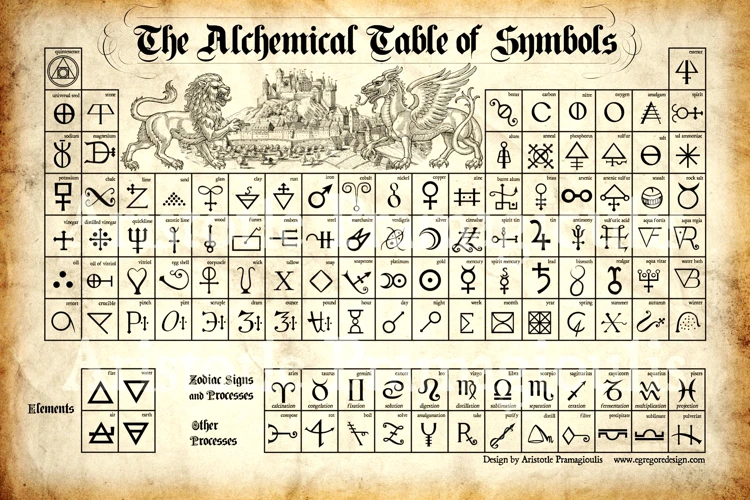
Alchemy’s role in philosophy and spirituality was profound during the Islamic Golden Age. Alchemical practices were not limited to the physical realm of transmuting metals; they also delved into the realms of symbolism and metaphysics. Alchemists sought to understand the hidden meanings behind their experiments, viewing them as allegorical representations of the spiritual journey. Through their work, alchemists explored concepts such as duality, transformation, and the union of opposites, which had profound implications in both philosophy and spirituality. These alchemical principles influenced various philosophical schools of thought, such as Sufism, a mystical branch of Islam that embraced the symbolism and esoteric nature of alchemy. The alchemical pursuit of the Philosopher’s Stone, which represented the ultimate state of perfection and union with the divine, resonated deeply within spiritual traditions of the time. This integration of alchemy with philosophy and spirituality fostered a unique environment of intellectual exploration and introspection during the Islamic Golden Age.
4.1 Alchemical Symbolism and Metaphysics
Alchemical symbolism and metaphysics played a profound role in the Islamic Golden Age, intertwining philosophy, spirituality, and the quest for knowledge. Alchemical symbolism, characterized by complex diagrams and intricate imagery, served as a language through which alchemists communicated their theories and concepts. One prominent symbol often associated with alchemy is the Ouroboros, a serpent or dragon devouring its own tail, representing the cyclical nature of life and the eternity of the alchemical work. These symbols were not mere decorative elements but held deeper philosophical meanings that alluded to the transformation of the self and the universe.
Metaphysics, on the other hand, delved into the philosophical aspects of alchemy, exploring the nature of reality, existence, and the interconnectedness of all things. Alchemists sought to understand the underlying principles that governed the transmutation of substances, believing that by understanding the microcosm, they could unlock the secrets of the macrocosm. The principle of “as above, so below” was central to alchemical metaphysics, suggesting that the processes observed in the laboratory mirrored the workings of the universe as a whole.
Through alchemical symbolism and metaphysics, practitioners sought to bridge the gap between the physical and spiritual realms, attempting to uncover the hidden knowledge that lay within the universe. These pursuits influenced not only the practice of alchemy but also had a profound impact on broader philosophical and spiritual discourses in the Islamic Golden Age.
Image credit: Ouroboros
4.2 Influential Philosopher-Alchemists of the Islamic Golden Age
Philosopher-alchemists played a crucial role during the Islamic Golden Age, combining philosophical inquiry with alchemical experimentation to deepen their understanding of the natural world and the spiritual realm. One of the most influential figures of this era was Jabir ibn Hayyan, also known as Geber. Jabir believed that the transformation of metals extended beyond the physical realm and held symbolic meaning in the process of purifying the soul. His works, such as “The Book of Stones” and “The Book of Balances,” explored concepts of transmutation and the philosopher’s stone. Another notable philosopher-alchemist was Abu Bakr al-Razi, who contributed to the field of medicine as well. He emphasized experimentation and observation, paving the way for the development of a more scientific approach to alchemy. Al-Kindi, known as the “Philosopher of the Arabs,” also made significant contributions to the philosophical and alchemical traditions of the time. His works integrated Greek philosophy with Islamic thought, offering unique insights into the nature of the world and the alchemical processes. These influential philosopher-alchemists of the Islamic Golden Age paved the way for the emergence of modern scientific methodologies and left a lasting impact on both philosophical and alchemical traditions.
5. Decline of Alchemy in the Islamic World
During the Islamic Golden Age, the practice of alchemy reached its zenith and made significant contributions to various fields. However, as the Golden Age came to an end, alchemy gradually declined in the Islamic world. Several factors contributed to this decline.
1. Shift towards Rationalism: With the rise of rationalism and the growing influence of scientific methodology, alchemy began to lose its credibility as a legitimate scientific pursuit. The emphasis on empirical observation and experimentation in the emerging fields of chemistry and medicine led to a shift away from the esoteric and mystical aspects of alchemy.
2. Criticism and Skepticism: As the Islamic world was exposed to the works of European scientists and philosophers, such as Robert Boyle and Isaac Newton, criticism of alchemy increased. Skeptics questioned the validity of alchemical principles and methods, considering them unscientific and lacking empirical evidence.
3. Alchemy’s Association with Magic and Sorcery: Alchemy became increasingly associated with magic, sorcery, and charlatanism. The pursuit of alchemical transmutation was seen by many as unrealistic and fraudulent, tarnishing the reputation of the practice.
4. Rise of Islamic Fundamentalism: The rise of Islamic fundamentalism in the centuries following the Golden Age led to a decline in the tolerance for mystical and esoteric practices, including alchemy. The focus shifted towards religious orthodoxy, and alchemy was deemed incompatible with the teachings of Islam.
5. Emergence of Modern Science: The emergence of modern scientific disciplines, such as chemistry and medicine, provided alternative explanations and methodologies that rendered alchemical practices redundant. The advancements in these fields offered more reliable and reproducible results, steering scholars away from alchemical pursuits.
As a result of these factors, alchemy gradually faded from prominence in the Islamic world, giving way to more established and recognized scientific disciplines. While the legacy of alchemy can still be glimpsed in the symbolism and metaphorical language it introduced, its influence as a practical and experimental science diminished over time.
Conclusion
In conclusion, the role of alchemy in the Islamic Golden Age cannot be understated. It was a time of great exploration, innovation, and spiritual introspection. Alchemy found a welcoming home in the Islamic world, where scholars and philosophers delved into its mysteries, incorporating its principles into various fields such as science, medicine, and philosophy. The spread of alchemical knowledge, the establishment of renowned alchemical centers, and the contributions of influential philosopher-alchemists all played a significant role in shaping the intellectual landscape of the time. However, as the Islamic Golden Age came to an end, alchemy gradually declined, giving way to the emergence of modern scientific methodologies and thinking. Nonetheless, the influence of alchemy on subsequent scientific and philosophical endeavors cannot be denied. The legacy of the alchemists of the Islamic Golden Age continues to intrigue and inspire, reminding us of the enduring power of human curiosity, ingenuity, and the quest for knowledge.
Frequently Asked Questions
1. How did alchemy spread to the Islamic world?
Alchemy spread to the Islamic world through various channels, including translations of Greek and Persian texts, cultural exchange during the Islamic conquests, and the translation movement in Baghdad and other major centers of learning.
2. What were some prominent alchemical centers during the Islamic Golden Age?
Baghdad, Cairo, and Al-Andalus (Islamic Spain) were among the prominent alchemical centers during the Islamic Golden Age. These cities became hubs of knowledge and innovation, attracting scholars and practitioners from across the Islamic world.
3. How did alchemy influence the field of chemistry?
Alchemy laid the foundation for modern chemistry by introducing experimental practices, laboratory equipment, and chemical processes. Alchemists’ search for the philosopher’s stone and the transmutation of metals contributed to the development of metallurgy and chemical synthesis.
4. What contributions did alchemy make to medicine and pharmacy?
Alchemy played a pivotal role in the development of medicine and pharmacy during the Islamic Golden Age. Alchemists studied herbs, minerals, and chemical compounds to create medicinal remedies, contributing to advancements in pharmacology and drug formulation.
5. What is the symbolism and metaphysics behind alchemy?
Alchemy was not only a physical practice but also a spiritual and philosophical pursuit. Its symbolism, such as the famous ouroboros, represented concepts like eternity, cycles of transformation, and the unity of opposites. Alchemists sought not just to transform materials but also to attain spiritual enlightenment and inner transformation.
6. Who were some influential philosopher-alchemists of the Islamic Golden Age?
Philosopher-alchemists such as Jabir ibn Hayyan, known as Geber in the West, and Al-Razi, also known as Rhazes, made significant contributions to both philosophy and alchemy during the Islamic Golden Age. Their works synthesized knowledge from various disciplines and helped shape the understanding of alchemy and its connection to the natural world.
7. What led to the decline of alchemy in the Islamic world?
The decline of alchemy in the Islamic world can be attributed to the rising influence of rationalism, the emergence of orthodox religious beliefs, and the shift towards empirical science. Additionally, the skepticism surrounding the attainment of the philosopher’s stone and the transmutation of metals also contributed to its decline.
8. Was alchemy considered a legitimate scientific practice during the Islamic Golden Age?
Yes, alchemy was considered a legitimate scientific practice during the Islamic Golden Age. It was seen as a way to explore the mysteries of nature and had significant support from rulers, scholars, and practitioners. Alchemical knowledge was valued and integrated into various branches of science and medicine.
9. Did alchemists have any impact on artistic and literary expressions in the Islamic Golden Age?
Absolutely. Alchemy had a profound influence on artistic and literary expressions during the Islamic Golden Age. Alchemical symbols and themes found their way into poetry, architecture, and visual arts, reflecting the interconnectedness of science, spirituality, and creativity.
10. Is alchemy still practiced today?
While modern practice of alchemy has transformed into the field of chemistry, there are individuals and groups who still engage in symbolic alchemy as a means of personal transformation and spiritual exploration. However, alchemy as it was historically practiced during the Islamic Golden Age is no longer widespread.

